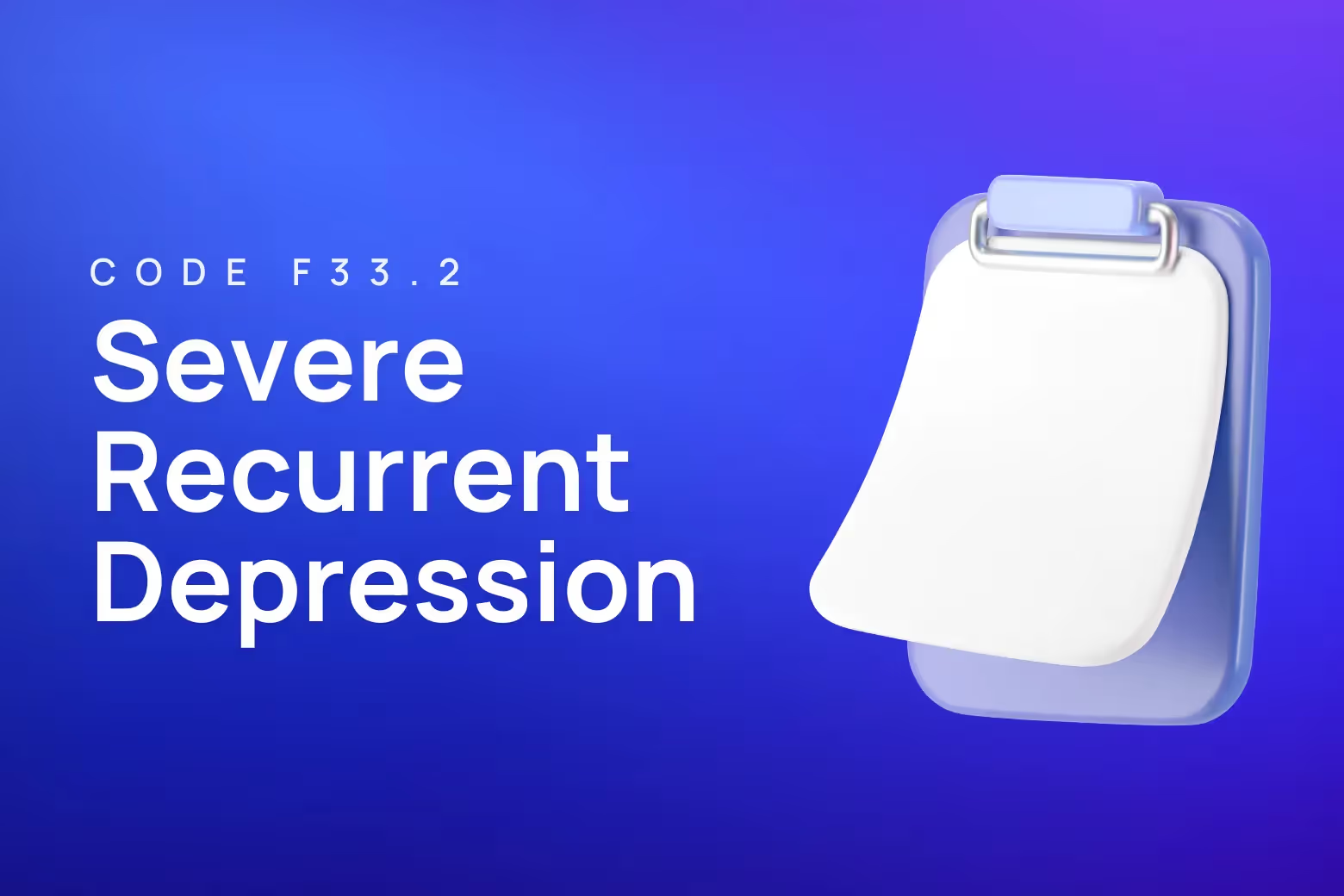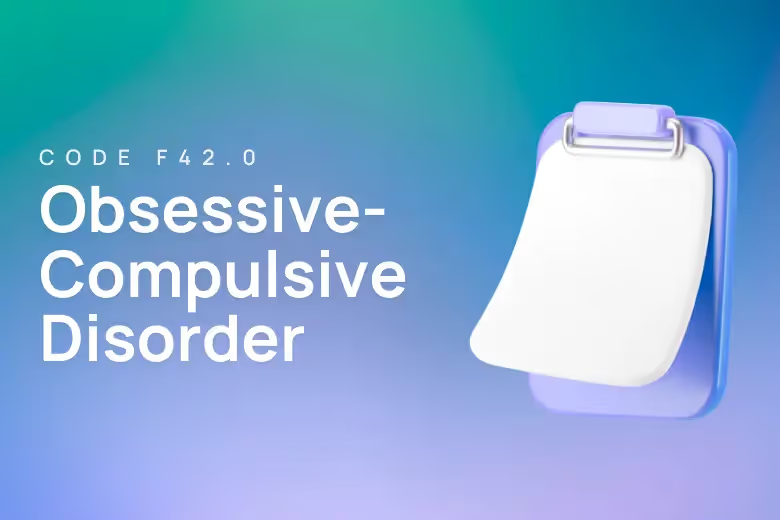ICD-10 code for major depressive disorder, recurrent, severe without psychotic features

Living with severe recurrent depression can feel like being trapped in a cave system during a flood. The darkness is absolute, the water keeps rising, and finding a way out seems impossible. Each breath requires immense effort, and the crushing pressure of the depths makes even basic movement a monumental task. For those experiencing severe recurring episodes of depression, this overwhelming sense of being submerged in darkness repeats itself, creating profound disruptions in daily functioning and relationships. But, with thoughtful diagnosis, treatment can help.
The ICD-10 code for severe recurrent depression without psychotic features is F33.2. This code appears within the F30-F39 category of Mental and Behavioral Disorders, specifically among the mood [affective] disorders, alongside other variations of depressive conditions.
Approximately 8.3% of all U.S. adults experience a major depressive episode each year, with severe cases like F33.2 representing some of the most challenging presentations. Unlike milder forms of depression where individuals can maintain some daily functions, severe depression creates significant impairment across multiple areas of life. The symptoms are intense and disabling, yet without the additional layer of psychotic features that characterizes its most severe variant.
When to use F33.2 for recurrent severe depression
Using the F33.2 code requires careful clinical assessment of both symptom patterns and functional impact. Severe depressive episodes typically present with most or all of the characteristic symptoms of depression and create marked interference with occupational and social functioning.
Distinguishing severe from moderate severity
The key distinction between moderate and severe depression lies in symptom intensity and functional impact. In severe cases, most aspects of life are significantly affected, with marked interference in work, relationships, and self-care — like being completely submerged, where even the most basic tasks require extraordinary effort. This can look like:
- Significant impairment in work or complete inability to work
- Severe disruption of social relationships
- Marked difficulty with basic self-care
- Multiple severe somatic symptoms
- Near-total loss of interest or pleasure
- Profound feelings of worthlessness or inappropriate guilt
Non-psychotic versus psychotic presentations
While both F33.2 and F33.3 represent severe depression, the crucial differentiator is the presence of psychotic features. In F33.2, despite the severity of depressive symptoms, the individual maintains touch with reality. There are no delusions or hallucinations, though thinking may be significantly slowed and decision-making severely impaired.
Psychotic depression involves specific additional symptoms not present in F33.2:
- Delusions (false beliefs)
- Hallucinations (such as hearing voices)
- Psychomotor agitation or retardation (slowing down)
- Loss of touch with reality
Other ICD-10 codes for depressive disorders
- F32.2: Major depressive disorder, single episode, severe without psychotic features
- F33.1: Major depressive disorder, recurrent, moderate
- F33.3: Major depressive disorder, recurrent, severe with psychotic symptoms
- F33.40: Major depressive disorder, recurrent, in remission, unspecified
- F33.41: Major depressive disorder, recurrent, partial remission
- F33.42: Major depressive disorder, recurrent, full remission
- F33.8: Other recurrent depressive disorders
- F33.9: Major depressive disorder, recurrent, unspecified
Interventions and CPT codes for severe depression
Just as cave rescue requires specialized equipment and expertise, managing severe recurrent depression demands comprehensive intervention strategies. A combination of therapeutic approaches often provides the best outcomes for severe cases.
Individual psychotherapy
Like having an experienced guide through treacherous waters, individual therapy provides crucial support and strategies for managing severe depression. One-on-one sessions offer a safe space to process intense emotions and develop coping skills. CPT codes for individual psychotherapy include:
- 90832: 30-minute sessions
- 90834: 45-minute sessions
- 90837: 60-minute sessions
Medication management
Like having specialized diving equipment for deep waters, appropriate medication management can prove crucial for treating severe depression. Research indicates that maintenance pharmacotherapy plays a vital role in preventing recurrence. Approximately 60% of patients at risk for recurrent depression will experience a depressive episode within one year if left untreated. However, with proper maintenance treatment, this risk drops to between 10-30%.
CPT codes for medication management services include:
- 99213-99215: Evaluation and management services
- M0064: Brief medical psychotherapy with medication management
Supporting clients with severe recurrent depression
Like navigating treacherous waters, managing severe recurrent depression requires both skilled intervention and comprehensive support. While the symptoms may feel overwhelming and recovery may seem impossible, evidence-based treatment can help clients find their way back to stability and functionality.
Proper clinical documentation plays a crucial role in tracking patterns and ensuring appropriate care coordination. This documentation challenge is where technology can make a significant difference.
Upheal is an AI-powered clinical documentation platform that streamlines the note-taking process while ensuring compliance with documentation requirements. By reducing the administrative burden on clinicians, Upheal allows more time and energy for direct client care.












